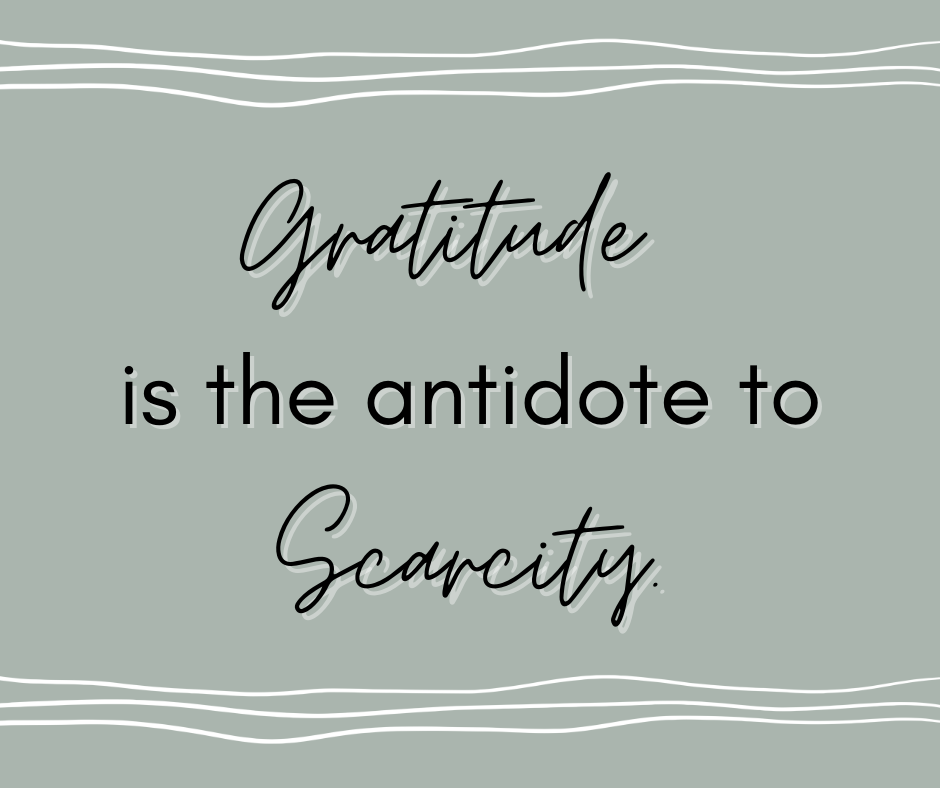Even in 2020 we can find three to five things we are thankful for, right?
In March, moving my counseling practice online (over a weekend) and not really leaving our house WAS A LOT to navigate. It was a lot for all of us to navigate. It continues to be lot to navigate…
Honestly, my gratitude practice held me together some nights in March and April of this year. Those early days of being quarantined at home felt like scarcity at its finest. Nothing was as it should be and it didn’t feel like there was going to be enough toilet paper/meat/jobs/ventilators for everyone. It was way too much scarcity for my mind to hold, but I knew gratitude is the antidote to scarcity.
Every night before putting my daughter in her bed, I would rock her and name the three best parts of my day. Just writing them down wasn’t enough for me at that time I had to say them out loud.
Sometimes it was as basic as a blooming flower in our yard, listening to good music, seeing family on FaceTime, or finding that scarce toilet paper. But I needed to name it. Each and every one one of those moments deserved the credit for being a good part to my day.
Gratitude is an incredible framework to see your day through... even if it was a rough day.
Practicing it every day helps to rewire your brain. SHOUT OUT to neuroplasticity! Our brains will always be trying to keep us safe; and safety seeking means to remember when we felt scared, which is great to keep us from walking in front of moving cars. BUT we also need to remember the joyous moments too and sometimes our brains need the extra help.
Cultivating a gratitude practice is scientifically shown to help you become more optimistic, feel better about your life as a whole, and make progress toward your goals.
If you are looking for some ideas of what you might include in your gratitude practice, here are some ideas:
the sunrise/sunset
the funny thing your friend/kid/tv character said
listening to a favorite song while doing the dishes
the hard conversation you had with a friend
savoring your cup of coffee
Cultivate the life you want through gratitude because there is good stuff all around us.













